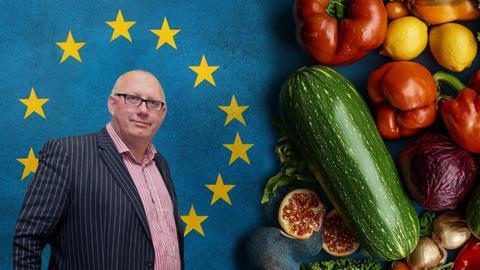Industry body calls on Labour government to revise or delay planned border inspections to avoid significant inflation
Chief executive of the Fresh Produce Consortium (FPC), Nigel Jenney, has warned the new government that British shoppers could see higher food prices if upcoming Brexit border checks are not delayed.
He stressed that imported fresh produce could see significant price increases unless the UK government takes action to delay or revise the planned checks, set to begin in January 2025.
Jenney expressed his concerns in an interview on BBC Radio 4 on 23 August, emphasising that the industry remains “in the dark” about the specifics of the border checks.
If the regulations go into full effect next year, it could mean over 2,000 vehicles per week, bringing fresh produce into the UK, are subject to strict controls.
“We are simply waiting for confirmation of when these checks will begin to occur and which products will be within the controls. We simply don’t have it at this time, after years of waiting,” Jenney said.
Despite ongoing consultations with the government, there has been no confirmation of the scope of the regulations, or which products will be impacted.
He continued: “The FPC is concerned that preparing for these checks could lead to significant costs for both the industry and consumers, especially if the checks turn out to be unnecessary.
“The current border strategy also undermines UK horticultural production of many of our favourite homegrown fruit and veg.
“It’s essential we import both seed and young plants to support UK production of many crops, including tomatoes and many more. The delays and risks imposed by the previous government’s border strategy are immense.”
The uncertainty around the timing and scope of the checks is causing further concern for businesses already operating on thin margins.
Jenney pointed out that the industry has invested heavily in proactive measures to ensure the biosecurity of imports, but these efforts are being undermined by the government’s indecision.
“On the basis of the regulations, they are based on risk from a biosecurity point of view, so risk of potential pests and diseases.
“If the government confirms that many of these products are low risk, the controls don’t need to happen, and the costs don’t need to be incurred.
“However, what we should remember is that the broader strategy that has been adopted by the previous government, which is so enormously expensive that these costs cannot be absorbed by the industry.”
He concluded: “We have cost-effective solutions to ensure UK consumers can continue to enjoy great fresh produce at affordable prices, but we are being undermined by our own government.”




